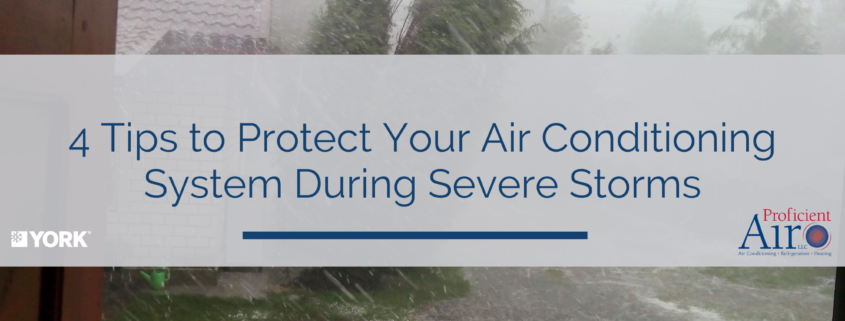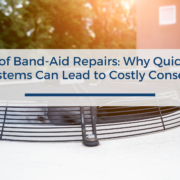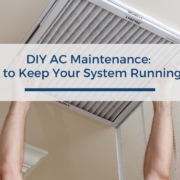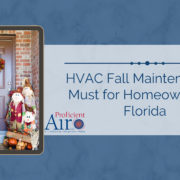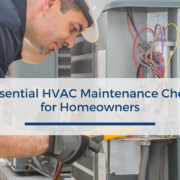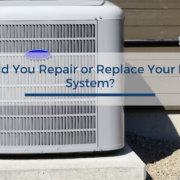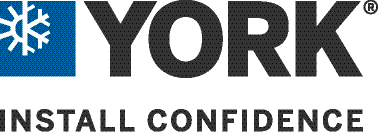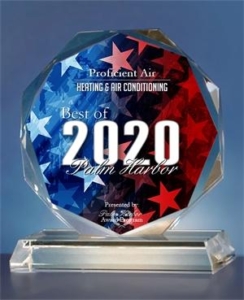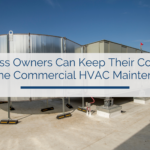4 Tips to Protect Your Air Conditioning System During Severe Storms
It’s been a pretty quiet summer storm season primarily due to Saharan dust that has served to suppress tropical development. As the dust settles, meteorologists are expecting an uptick in tropical storms and severe weather that could impact the Tampa Bay area as we enter into the last three months of hurricane season 2022.
The Tampa Bay Times recently reported that the last time there was no recorded tropical activity from July 3-August 16, was in 1999, and we subsequently saw 12 named storms in the three months that followed.
“I think for most people, they recognize that we haven’t had a lot of spaghetti model plots to show, we haven’t had a lot of tracks to show on the air,” Juli Marquez, a meteorologist at Spectrum Bay News 9, said. “I would say that it’s the quiet times like now that it’s a good time to review your hurricane plan,” the TBT article stated.
With that in mind, we think it is a great time to review the most common extreme weather elements that can damage your HVAC system and 4 tips to protect your air conditioning system during severe storms.
Five elements of extreme weather and storms include humidity, strong winds, obstructions, lightning, and flooding, all of which can negatively impact your air conditioner and, ultimately, your family’s comfort.
- Humidity. Our tropical climate is prone to higher levels of humidity, especially before, during, and after seasonal storms. If your air conditioner is functioning properly, it will efficiently cool and remove moisture from the air, so the environment feels less muggy and more comfortable. An inefficient air conditioner works harder to remove the moisture, which shortens the life of the HVAC unit and drives-up energy costs. Moreover, if your air conditioning unit is too small for your space, it may not have the ability to remove all of the moisture in the air. A dehumidifier may be a solution, and regular air conditioning maintenance will identify efficiency issues to help protect you, your family, and your HVAC investment.
- Strong Winds. Tropical-force winds can knock an air conditioning condenser off its concrete slab making it a dangerous projectile. Additionally, strong winds associated with severe storms carry all types of airborne debris, large and small, that can damage the compressor’s metal casing, the fan’s grill, and possibly, even the fan blades if debris gets forced into the metal housing.
- Obstructions. When debris gets thrown against the outdoor compressor or it is forced inside the metal housing by wind or water, it can block the air vents and damage fan blades, electrical components, and refrigerant lines. Also, yard décor, weeds, rodents, bird nests, or anything that comes in contact with the compressor and minimizes the airflow to the unit, will inhibit the air conditioner from operating efficiently. This can promote mold growth, too, which further compromises the integrity of the internal components.
- Lightning. HVAC.com explains how lightning can affect an air conditioning system, “The damage caused by a lightning strike can render your air conditioner unusable. It can melt the plug to your unit. The air conditioner’s control panel is full of sensitive electrical circuitry which can be damaged, requiring an extensive repair or even replacement of the entire unit. The system’s controls can be corrupted to the entire (HVAC) system if a lightning strike occurs when the system is operating.”
- Flooding. Flash flooding is likely to occur after severe storms and tropical events. There is nowhere for the water to go but wherever it naturally flows along the coast. When torrential rain falls, the air conditioning compressor is constructed to handle excess water. Flooding, on the other hand, can cause serious damage to your cooling system. You can cover the unit with something other than plastic in an effort to protect it from becoming submerged in heavy flood waters. However, the best idea is to create a drainage system that will channel the water away from the air conditioner. If the compressor does succumb to flood waters, do not power it on when the waters recede! Contact a highly trained air conditioning service technician at Proficient Air to inspect the unit first.
Now that we have more information about the key elements of severe weather that can negatively impact your air conditioning unit in the Tampa Bay area, there are four tips you can use to preserve your family’s comfort and protect your air conditioner before, during, and after severe storms to limit damage to the unit and prevent lapses in functionality once electricity is restored.
- Turn up the A/C. Tampa Bay is the lightning capital of the world, and we know storms can bubble up at any given time during the summer months. However, when severe tropical storms are in the forecast, consider turning your thermostat to a lower setting than normal to extra-cool your home. Make sure all windows and doors are tightly closed so cool air doesn’t escape, and should you lose power, your home will remain more comfortable for a longer period of time.
- Prepare the Outdoor A/C Compressor. The outdoor air conditioner compressor is typically located outdoors on a concrete slab. It should be properly stabilized with hurricane straps to prevent the unit from becoming a projectile during strong storm winds. Be sure to cover the compressor to protect it from flying debris and excess water, should flooding occur, but always avoid wrapping the unit in plastic, which can trap moisture and cause even more damage.
- Protect Electrical Components. If you do not have your air conditioner plugged into a surge protector, it is strongly encouraged. Power surges can significantly damage the wiring and electrical components, which can render your system powerless.
- Turn the A/C System Off! Once you have cooled your home, strapped and covered the outdoor compressor, and applied an electrical surge protector, power off the unit prior to the storm’s arrival.
When the storms have passed, there are specific steps to take before turning your air conditioner on again.
- Uncover the A/C. After a powerful tropical storm or hurricane, and BEFORE YOU TURN ON THE A/C UNIT, it is crucial to REMOVE THE COVERING FROM THE OUTDOOR COMPRESSORTO, RESTORE AIR FLOW and check for damage from flying debris and flooding from extreme rain. If you notice damage of any kind, contact the professionals at Proficient Air before turning your air conditioner back on.
- Check A/C Components. If there were power outages and excess lightning, be sure to check the electrical components to make sure they were not negatively impacted.
- Call for Proficient Air Assistance after Flooding. As stated above, if you have experienced flooding and the air conditioner compressor has been submerged in water, DO NOT restore power to the unit or you could exacerbate the damage. We recommend you call your air conditioning specialists in the Tampa Bay area, Proficient Air, to inspect the system first.
We encourage you to adhere to a regular air conditioning maintenance program in the Tampa Bay area, to keep your air system running effectively and efficiently, especially after severe storms and extreme weather events. Our professional Proficient Air service technicians are expertly trained to inspect the primary components of all brands of air conditioners, identify issues, and offer affordable solutions, even if we didn’t install the system.
Proficient Air was established in 2010, as a family-owned and operated air conditioning company in the Tampa Bay area, and we are dedicated to providing our customers with the finest, most affordable strategies in cooling and heating systems, and high quality you can rely on. At Proficient Air, our customers always come first and receive the personal attention they deserve. Our highly trained technicians provide the best options for home and business owners and guide them to the best, most informed decisions. Our motto stands true: Efficient Care = Proficient Air.
Proficient Air in Palm Harbor offers air conditioning maintenance, repairs, and installation services that are specifically tailored to your needs and budget. If it is time for you to schedule routine air conditioner maintenance, you require air conditioner repairs, or you need a new air conditioning system installation, contact Proficient Air today! 727.386.2732
Sources:

